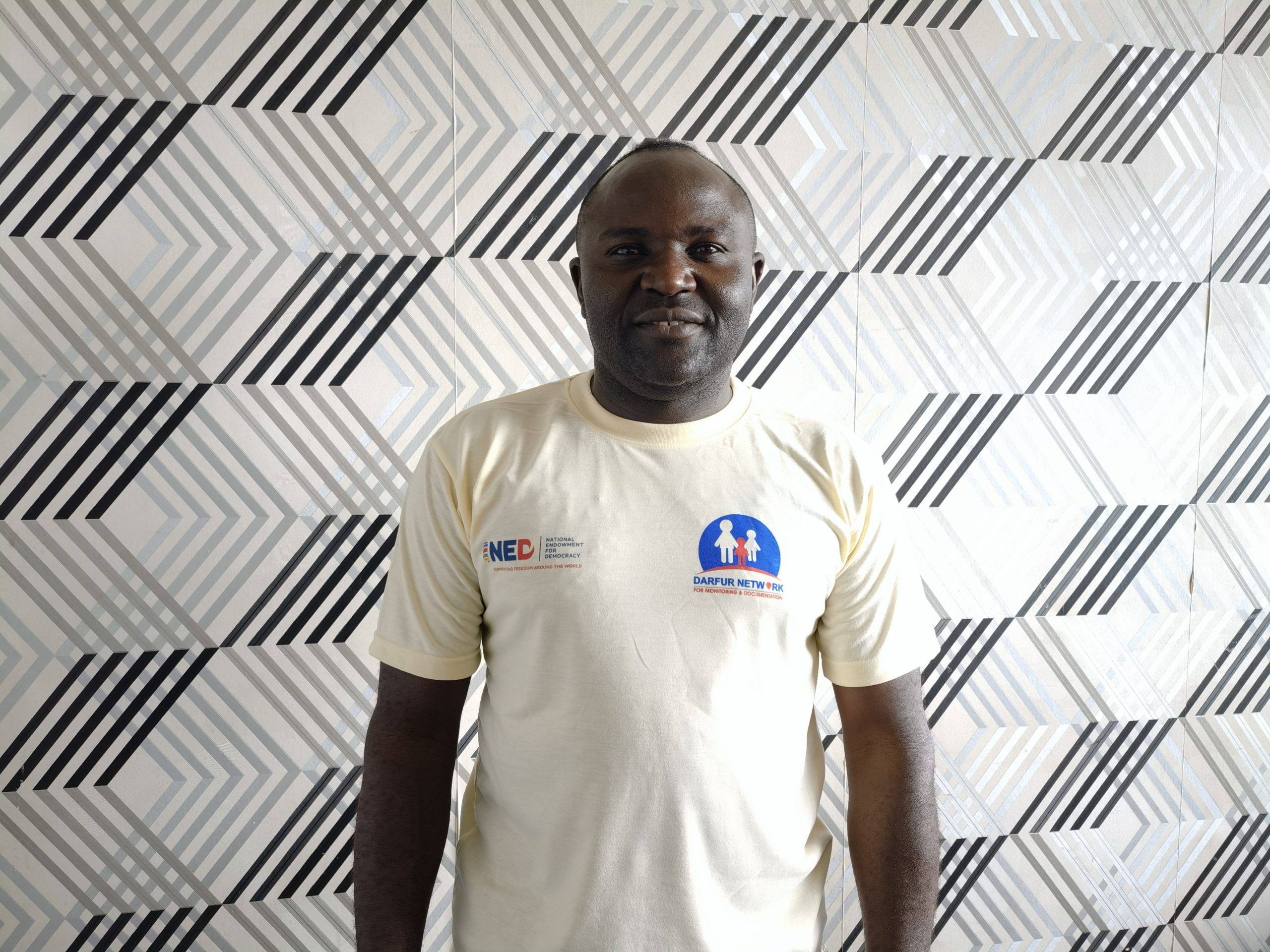Mohammed Hassan has known mostly conflict, displacement, and war all his adult life. As part of Sudan’s black population in the country’s region of Darfur, they were for long the victims of oppression by Khartoum, then under now deposed dictator Omar Bashir. Then, in 2003, when Mohammed was 19, Darfur’s black population decided to fight back. Two rebel movements – Sudan Liberation Movement and the Justice and Equality Movement launched a rebellion against Bashir’s government, seeking justice for Darfur’s non-Arab population. The response by Khartoum was chilling: Bashir’s forces launched a campaign of ethnic cleansing against the region’s non-Arab population, and thousands of families were displaced and herded into refugee camps.
Mohammed’s family was one of those displaced from their home, into Kalma refugee camp in South Darfur, where other nearly 90,000 people relocated for shelter from the violence. Removed from orderly living and unable to attend school many youths including Mohammed grew increasingly restless and agitated against the status quo, and when an aid worker in the camp was killed under unclear circumstances, Mohammed and 150 other youth were rounded up and charged with the crime. They would be released a month later, after the intervention of Amnesty international. By the time Mohammed was released, he had developed such an avid revulsion to injustice, he decided he would henceforth become a human rights defender:
“I was convinced that such a hopeless situation for many of us and our families was unsustainable. I decided that I would pursue all legitimate means necessary to end the injustices and all the accompanying human rights violations against our people in Darfur so that our people could go back to lead their lives in peace,” he says
Mohammed Adam Hassan Tweet
As a first step, Mohammed decided to start exposing human rights violations by military authorities, using his social media pages. In 2016, he was part of a long-ranging investigation by Amnesty International of human rights violations in Darfur, including the use of chemical weapons in Darfur’s Jabel Marra province. After the report was released, Sudanese intelligence authorities tracked him down with the intention of arresting him, prompting him to flee.
The following year, after months on the run, he contacted DefendDefenders for evacuation as an at-risk HRD. After initial complications following red alerts issued against his name at airports and borders of Sudan, Mohammed finally made it out of Sudan to Uganda, and was received by DefendDefenders who gave him a desk from which to work, a laptop, and access to unlimited internet.
“DefendDefenders really gave me an opportunity to repurpose my life when everything around me had ground to a halt. Hassan (DefendDefenders Executive Director) particularly put DefendDefenders resources at my disposal so that I could continue my activism even when I was in exile, and for that, I am eternally grateful to him and to DefendDefenders,” he says.
Mohammed Adam Hassan Tweet
Mohammed would remain housed by DefendDefenders for the next four years, during which he was able to enrol at the Kampala-based International University of East Africa and complete his bachelor’s degree in Law, which he had abandoned when he was forced to flee from Sudan. Facilitated to resume his human rights work, Mohammed also used his time at DefendDefenders to set up and register Darfur Network Monitoring and Documentation as a human rights NGO, through which he continued to monitor human rights developments in Darfur.
“I was able to reactivate my contacts in all Darfur’s five states through whom I would be provided routine briefings on human rights developments on the ground. DefendDefenders offered to fly some of these contacts to Kampala, where they trained them in monitoring, documentation and reporting, which progressively improved the quality of our work,” he says.
Mohammed Adam Hassan Tweet
Today, Mohammed has been able to rent new office premises in Kampala, which currently house the Darfur Network for Monitoring and Documentation, at which he employs five fulltime staff. His network of human rights monitors in Darfur has also since increased to 25, prompting the organisation to expand its focus from just Darfur to South Kordofan and the Nuba mountains.
The Darfur Network for Monitoring and Documentation is now a member of the South Sudan Human Rights Coalition launched in Kampala this year. Last year, its work and reports were part of evidence tabled by the international criminal Court (ICC) in its prosecution of Ali Kushayb, a notorious Janjaweed commander who was in 2007 indicted by the ICC for war crimes in Darfur.
He insists credit must go to DefendDefenders. “Without DefendDefenders, I would not be here. There would be no Darfur Network for Monitoring and Documentation. Hassan in particular, has been a trailblazing leader in the human rights sphere, and I wish that other human rights organisations can be as dedicated as he is,” he says.

